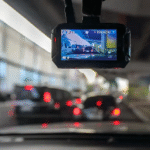The City of Subiaco is facing controversy following the release of a sharply critical audit report. Colin Cameron, the city’s CEO, has strongly condemned the audit’s methodology, asserting it prioritized sensationalism over accuracy and substance. This article explores the accusations in detail, highlighting the main points of dispute and considering the potential consequences for the City of Subiaco.
A Dispute Over Audit Findings
The audit, commissioned by the Western Australian Local Government Association (WALGA), reportedly identified several concerns regarding the Subiaco council’s financial management and governance practices. However, Cameron contends that the report’s findings were presented in a deliberately provocative way aimed at attracting media attention, rather than providing a balanced and nuanced evaluation of the council’s performance. He claims the audit “took a headline-grabbing approach,” overshadowing the council’s positive achievements and possibly misrepresenting the facts.
Main Criticisms of the Audit
Cameron’s criticisms focus on several key issues:
- Selective Focus: He alleges the audit emphasized negative aspects while overlooking positive achievements and improvements made by the council. This, he argues, created a distorted and incomplete view of the council’s overall performance.
- Lack of Context: Cameron asserts the audit did not provide adequate context for its findings, leading to misinterpretations and unwarranted conclusions. He suggests that some issues presented as major failings were in fact minor irregularities or were already being addressed by the council.
- Overly Critical Tone: The CEO believes the report’s tone was excessively harsh and lacked the objectivity expected from a professional audit. He contends this biased approach undermined the credibility of the findings and served only to harm the council’s reputation.
- Insufficient Engagement: Cameron claims the auditors failed to properly engage with the council during the audit process, preventing the council from offering clarification and context on key issues. This lack of engagement, he argues, compromised the accuracy and fairness of the report.
Consequences for Subiaco
The repercussions of this audit are significant and may have lasting effects on the City of Subiaco. Cameron’s accusations call into question the integrity and impartiality of the audit process itself. This raises serious concerns about the reliability of future audits conducted by WALGA.
Damage to Reputation and Public Trust
The negative publicity generated by the audit has undoubtedly harmed the council’s reputation and eroded public trust. Residents may doubt the council’s competence and financial management, leading to reduced confidence in local governance. This is particularly troubling given the council’s vital role in the community.
Financial and Resource Impacts
Addressing the audit’s findings will require substantial resources and financial investment from the council. Implementing recommended changes and resolving the issues raised will divert funds and staff from other important priorities. Additionally, managing the fallout from the controversy—including legal fees and public relations efforts—poses a considerable financial burden.
Political Ramifications
The controversy also has significant political implications. The audit’s findings could affect upcoming local elections, with opposition candidates potentially leveraging the negative publicity to challenge incumbent council members. Moreover, the situation highlights broader concerns about transparency and accountability in Western Australia’s local government.
Beyond the Headlines: A Closer Look
The Subiaco audit controversy goes beyond sensational headlines. It highlights the need for greater transparency and accountability in local government auditing processes. Cameron’s criticisms point to potential weaknesses in how audits are conducted, raising important questions about:
- Auditor Independence and Objectivity: Are auditors sufficiently independent from the entities they review to ensure impartiality? Are there safeguards to ensure their work remains unbiased and free from external influence?
- Audit Methodology Effectiveness: Do current audit methods adequately capture the complexities of modern local government operations? Could more effective approaches provide more balanced and nuanced evaluations?
- Robust Grievance Mechanisms: Are there adequate channels for local councils to challenge audit findings and ensure their perspectives are fairly considered?
These questions must be addressed to ensure future audits are conducted fairly, objectively, and provide genuinely useful insights for local councils.
Moving Forward: Transparency and Cooperation
The path forward requires a commitment to transparency and a willingness to engage in constructive dialogue. Both the City of Subiaco and WALGA must collaborate to address the concerns raised, ensuring any necessary improvements are implemented openly and fairly. This process should prioritize restoring public confidence and fostering a positive working relationship between the council and its governing bodies. Open communication, alongside a dedication to learning from this experience, is essential for rebuilding trust and enabling the City of Subiaco to serve its community effectively. The ultimate aim should be to move beyond the headline-grabbing controversy and focus on the city’s long-term well-being.

